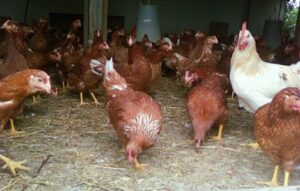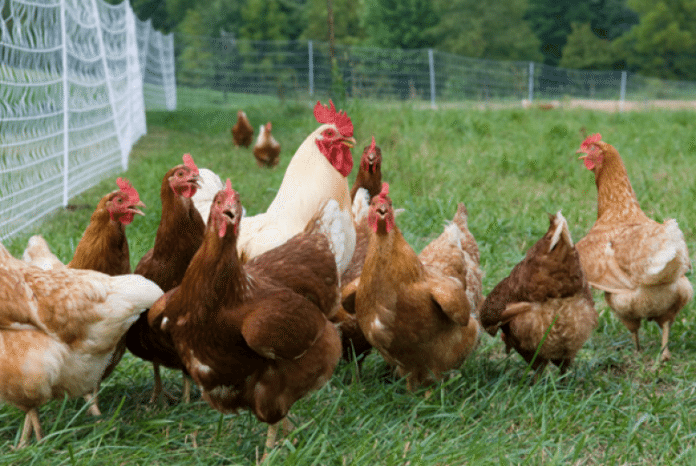Kenya Agricultural and livestock Research Organisation (Kalro) has embarked on a rigorous campaign to enhance indigenous chicken production and marketing for poverty alleviation and improved food security among small-holder households.

The organisation, which started a project targeting intensive and extensive poultry farmers, said the first phase of the pilot project has been completed with positive results.
Indigenous Chicken Farming in the Counties
It is being implemented in Kiambu, Kirinyaga and Machakos counties by Kalro in collaboration with the Korea Project on International Agriculture (Kopia). The improved indigenous poultry breeds are able to increase egg production by between 200 and 250 eggs a year from between 30 and 50 eggs a year for local chickens.
Researchers are using two model villages at Mbiuni in Machakos county and Ka rai in Kiambu county where farmers have now started reaping the benefits of the project since its commissioning.
Villages Winning big on Indigenous Chicken deal
“Barely a year after we launched this project, farmers in the two villages are serving as models to the surrounding communities by adopting and diffusion of the improved indigenous chicken technologies,” said Dr Mbae Bauni, the lead researcher.
He said the egg-laying age for the improved breed has been lowered to between five and six months from eight months for local indigenous chickens. Other attributes of the new breed include the improved chick weight to between 40 and 50 grammes, up from 25 grammes for local breeds.
The researcher said farmers in Mwala were doing better than their Karai counterparts due to land varying sizes.
“In Mwala, land is expansive, population small thus creating room for the poultry project as opposed to Karai and Kirinyaga where farmers live in small plots measuring about 40×50 feet due to high population density and urbanisation, owing to proximity to Nairobi,’’ Bauni said.
He said so far, 2,200 improved chicks from Kalro’s Naivasha office have been distributed to farmers, benefiting 130 family units directly while 1,200 more will be distributed this month.
Bauni said income from the project has risen from Sh7,150 per farmer before the training in Karai to Sh15,210 and from Sh1,500 to Sh15,910 in Mwala. The project, fully funded for three years by the Korean government through Kopia, ends in 2017.










